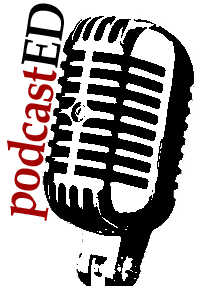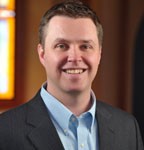“I am heartbroken,” was Supreme Court Justice Sonya Sotomayor’s response upon hearing that her Catholic alma mater, Blessed Sacrament School in the Bronx, would be among the 24 latest Catholic schools to close in an impoverished area. She continued in her New York Times interview to describe it as “symbolic of what it means for all our families, like my mother, who were dirt poor … It was a road of opportunity for kids with no other alternative.”
In this country, we unquestionably have a shortage of quality schools, particularly those that serve urban poor families. So why do we continue to watch as hundreds of quality faith-based schools close because the financial deck is stacked against them?
Families would eagerly choose them. They have served their communities for decades. They’ve been effective. As Sotomayor noted, their dropout rates are lower and their college attendance rates are higher than comparable public schools, not to mention the significant output of distinguished civic and corporate leaders. U.S. government surveys show parents are consistently highly satisfied with them – at even higher rates than parents in chosen public schools.
The continuing closure of nearly all types of faith-based schools is a disturbing trend. And raising awareness with the public and policymakers about it is why the American Center for School Choice launched its Commission on Faith-based Schools. At its second meeting, recently held in Jacksonville, Fla., this ecumenical group with representation across the spectrum of faith-based communities decided to organize a national conference in Austin, Texas in the May/June time frame. It will focus on the peril these schools face, and draw attention to how much will be lost in American education if families who wish to choose faith-based schools cannot continue to do so. The target audience will be religious leaders, media, the research community, and legislators and staff.
In the past two years, impressive progress has been made in expanding school choice to include these schools. We now have 32 private school choice programs in 16 states and Washington, D.C., with the enactment of five new programs and the expansion of six existing ones in 2012.
The commission believes that with a focused effort and call to action, these programs can and need to grow at a faster rate to preserve the opportunities faith-based schools bring to urban communities in particular. (more…)
Catholic schools used to be neighborhood schools. Many of them served immigrant familes. But since 2000 alone, more than 1,700 have closed in the United States, leaving voids in communities and diminishing school choice options for families who could use them now more than ever. In an effort to change that, the University of Notre Dame is leading a partnership that aims to improve the quality of Catholic schools, particularly for low-income, Hispanic families.
 The university's ACE Academies program began two years ago in Tucson, Arizona and is now rolling out at two schools in Tampa Bay (St. Joseph in Tampa and Sacred Heart in Pinellas Park). In this redefinED podcast, program director Christian Dallavis notes two important statistics: 1) two thirds of practicing Catholics in the U.S. who are under the age of 35 are Hispanic, and 2) only about 50 percent of Hispanic students graduate from high school in four years.
The university's ACE Academies program began two years ago in Tucson, Arizona and is now rolling out at two schools in Tampa Bay (St. Joseph in Tampa and Sacred Heart in Pinellas Park). In this redefinED podcast, program director Christian Dallavis notes two important statistics: 1) two thirds of practicing Catholics in the U.S. who are under the age of 35 are Hispanic, and 2) only about 50 percent of Hispanic students graduate from high school in four years.
"We see the future of the church is on pace to be kind of radically undereducated," Dallavis said. But "we also have a solution in that we know Catholic schools often put kids on a path to college in ways that they don't have other opportunities to do so."
It's no coincidence the program came to Arizona and Florida. Both states have large Hispanic populations. Both offer tax credit scholarships to low income students.
"They provide a mechanism that allows Catholic schools and other faith-based schools to sustain their legacy of providing extraordinary educational opportunities to low-income families, immgrant communities, minority children, the people on the margins," Dallavis said. "We see the tax credit as really providing the opportunity to allow the schools to thrive going into the future."
But make no mistake. This effort isn't about quantity. The Notre Dame folks know in this day and age, school quality, whether public or private, is essential - and they're looking to beef up everything from curriculum to leadership to professional development. Their goal for the kids: College and Heaven. Enjoy the podcast.